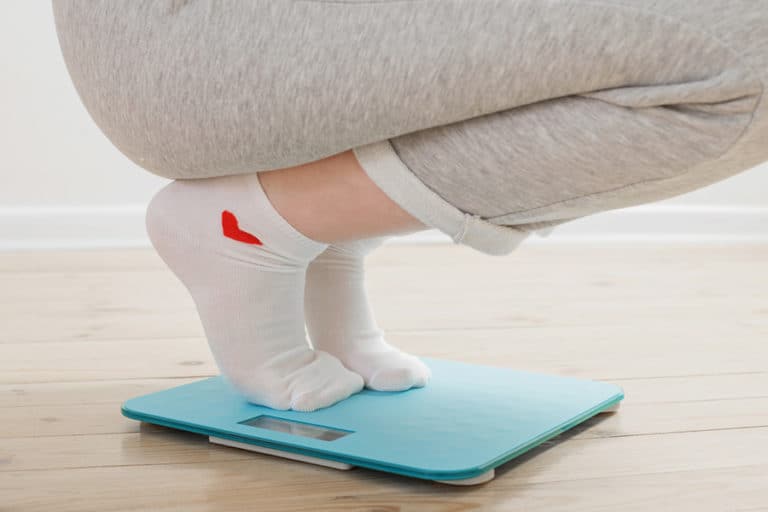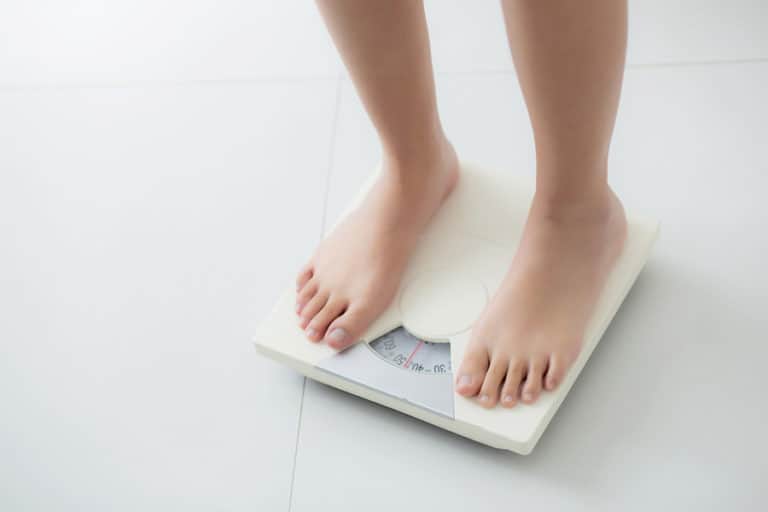How To Lose Weight Fast For Teens

Quick Weight loss ways | Factors | Parents role | other ways
Weight gain has been a common concern among teens. However, it is normal to gain weight during this stage.
The body is growing and changing, so an increase in weight is expected. But for some teens, this weight gain can be a cause for concern.
If you are one of these teens, or if you want to lose weight, there are a few things you can do to lose weight fast.
11 ways – how to lose weight fast for teens
Here are some specific ways for healthy weight loss for teens in a safe and systematic manner.
1. Eat a healthy diet
There are several factors involved when it comes to maintaining a healthy diet. Eating a healthy diet will help you get all the nutrients your body requires. Consuming healthy foods will help boost metabolism, lose weight fast, and keep it off in the long run.
The key element is to include a balanced amount of:
- Fruits, vegetables, nuts, and beans – are good sources of dietary fiber and healthy carbs.
- Poultry meats, eggs, fatty fish, cheese, whole grains, and dairy- a rich source of protein and healthy fats.
To benefit from a balanced diet, it is essential to reduce the intake of processed foods.
2. Avoid fast food
Fast food is typically loaded with calorie-dense,disease-promoting chemicals and synthetic ingredients that can make you gain weight.
Moreover, consuming processed foods and sugary drinks can spike blood sugar levels due to refined carbs and added sugars.
Thus, the consumption of junk food results in a spike in insulin. [1]National Library of Medicine: The Hidden Dangers of Fast and Processed Food Therefore, you should try to avoid fast food as much as possible and opt for healthier alternatives.
3. Avoid fad diets/crash dieting
Crash diets can cause several health problems. One of the most significant ones is “rebound weight gain.” [2]Obesity Action Coalition: The Risks of the Crash Diet It is when your body goes into starvation mode, and you return to your regular eating habits after a period of severe calorie restriction. With this, you gain all the weight back, and sometimes even more.
Moreover, diet pills, teas, and other supplements that promise “quick weight-loss” are often ineffective and can pose several health risks.
If you are wondering how many calories my adolescent [3]Healthy Children: A Teenager’s Nutritional Needs should eat in a day, then boys should consume about 2800 calories on average, whereas girls should consume 2200 calories per day.
4. Drink enough water
Water is 100% calorie-free and is one of the most natural ways to help with weight loss.
Drinking water after regular intervals keeps your body hydrated and helps to boost your metabolism, which then aids in burning fat.
It is also known to reduce hunger pangs by making you feel fuller. Moreover, water works as a lubricant and helps clear waste from the body.
Drinking 34-50 ounces of water every hour is ideal for teenagers.
5. Get enough sleep
Getting enough sleep can prevent weight gain. When the body is sleep-deprived, it produces the “ghrelin” [4]National Library of Medicine: Adequate sleep to improve the treatment of obesity hormone, which boosts appetite.
On the contrary, due to lack of sleep, the body lacks another hormone called “leptin,” which is responsible for signaling fullness. Thus, resulting in overeating and added calories that could have been avoided.
In addition, poor sleep can cause increased oxidative stress, glucose intolerance, and insulin resistance, all of which are associated with weight gain. Therefore, to avoid these issues, teenagers are advised to get 7–9 hours of sleep per night for the best results.
6. Work out regularly
While performing a physical activity, the body requires energy. The body gets this energy by burning calories. However, after a certain amount of exercise, the body starts burning fat for energy. This results in weight loss. Thus, working out regularly is an excellent way to lose weight and stay fit.
Here is a quick exercise circuit for teens to follow:
- Jump rope: 1 minute
- Squat jumps: 10-20 reps
- Crunches: 15-20 reps
- Standard push-ups: 10 -15 reps
- Burpees: 10-12 reps
- Walking lunges: 10-12 reps on each side
- Leg raises: 10 to 15 reps
Note: Begin the workout with static stretches to warm your body. Conclude the workout with dynamic stretches for muscle recovery. Perform 1-2 sets of the above-given circuit. Modify the sets and reps as per your capacity and intensity.
Besides that, working out regularly releases endorphins, known as “feel-good hormones.” These endorphins have mood-elevating effects that can help to keep off stress. This further prevents you from stress eating.
7. Practice yoga
Practicing yoga as a teen can help you lose weight as it involves a lot of physical activity. Moreover, one of the most significant advantages of performing yoga is it helps with better digestion. This can help reduce inches by flushing out toxins from the body.
Performing yoga types such as restorative yoga, Hatha yoga, or Vinyasa yoga [5]National Center for Complementary and Integrative Health: Study Sees Beneficial Role of Yoga in Weight-Loss Program for Adults With Obesity or Overweight have proved effective for losing weight.
Moreover, yoga helps to achieve a better state of mind and aids in stress reduction. This is significant because stress can lead to weight gain.
8. Avoid skipping meals
Skipping meals can have a significant impact on your weight. It increases the likelihood of overeating as you tend to become extremely hungry by the time you eat your next meal. This can lead to weight gain.
Moreover, when you skip meals, your body slows down the metabolic process causing you to gain weight and making it difficult to lose weight.
You are recommended not to skip breakfast, as it is one of the most important meals of the day. Your body gets the required energy at the right time by having timely meals. This helps to maintain healthy body weight.
9. Practice mindful eating
Mindful eating is a technique that helps you to be aware of your eating habits and makes you more conscious of the food you consume. It also teaches you to eat as per your body’s requirements and not in accordance with your emotions.
Counting your calories [6]Mayo Clinic: Counting calories: Get back to weight-loss basics and maintaining a calorie deficit can help you lose weight. This will help prevent overeating as it makes you more aware of the food you consume.
In addition, as a teen, you should schedule their meal time. This will help you to control your portion size and prevents you from overeating. Moreover, it also helps to regulate your hunger hormones and makes you feel fuller for longer.
10. Do not take stress
Stress can be a major factor in weight gain. When stressed, our bodies release the “stress hormone” cortisol. This hormone may cause an increase in appetite [7]PubMed: Stress may add bite to appetite in women: a laboratory study of stress-induced cortisol and eating behavior and make you eat more, eventually leading to weight gain.
Although cortisol is a necessary hormone, having too much of it can be detrimental to your health. Thus, it is essential to keep stress at bay to lose weight.
Practicing certain forms of yoga and exercises can help you to manage stress. Moreover, listening to calming music or reading a book can also help you relax and de-stress.
11. Avoid cheating on your journey of weight loss
One of the most important things to remember while trying to lose weight is to avoid cheating on your diet or skipping workouts. This can have a negative impact on your weight loss journey and may even lead to weight gain.
Here is a quick checklist for you to stay dedicated to your action plan:
- Know whether you wish to lose weight for the right reasons.
- Consult a medical professional/registered dietitian to educate and guide you to make healthy choices.
- Determine how much weight you really need to lose as per your body mass index.
- Limit your restaurant meals.
- When ordering food or serving your meal, start with less food and evaluate your hunger.
- Use your hands to measure your food portions. For instance, 03 oz of meat fits in the palm of your hand. 01 cup of any food can fit into your fist. If you wish to measure ½ a cup, it would be a handful.
- Get enough exercise and sleep. Also, do not forget to drink enough water throughout the day.
What factors affect weight in teenagers?
The adolescent years are full of changes due to several factors affecting teenagers’ weight.
Given- below are some significant factors that impact weight gain in teenagers:
1. Puberty
During puberty, there is a sudden spurt in growth and sexual maturation. This phase is accompanied by an increase in appetite and calorie requirements.
During the growth phase, this age group requires more calories for proper development. This increased calorie requirement can lead to weight gain if not met through diet or exercise.
2. Metabolism
The basal metabolic rate (BMR) is the number of calories the body requires to perform basic functions. As teenagers grow, their BMR increases, [8]Better Health: Metabolism increasing the calories they burn. If teenagers do not reduce their calorie intake to match their increased BMR, they may not lose weight.
3. Stress
Stress can lead to weight gain in teenagers by triggering the release of the hormone cortisol.
Cortisol can increase appetite and cause the body to store more fat. However, on the other hand, some teenagers may lose weight due to stress, like peer pressure.
Stress can cause binge eating habits or eating disorders. This leads to body image issues in teenagers. Such self-esteem problems can be detrimental to their mental health and overall well-being.
What can parents do to help their teenage kids lose weight?
There are many things that parents can do to help their teenage kids lose weight, but the most important thing is to be accepting and supportive. Here are a few things in particular parents can do:
- Make healthy meals for the entire family, not just for your teen alone. This will keep them motivated to practice healthy eating habits. Moreover, your teen would not feel excluded at the dining table.
- Be respectful of their appetite and do not force feed or encourage forceful eating.
- Do not compare your teenager’s weight or appearance to other people, including siblings or friends.
- Focus on physical activity as a family by going for walks or bike rides.
- Limit screen time (television, computer, video games) to no more than 2 hours per day to avoid a sedentary lifestyle.
- Make better snack choices by avoiding snacks high in calories, sugar, and salt. Here are some examples:
- Replace white rice with brown rice.
- Use olive oil instead of refined oil.
- Replace ice cream with low-fat frozen yogurt.
- Use fresh fruit juices instead of soft drinks/energy drinks.
- Switch fried or packaged snacks with sliced fresh fruit, baked chips, baby carrots with healthy dips, or some popcorn.
- Reduce your fat intake but do not completely cut down on fats. Dietary fat (unsaturated fat) is essential for normal brain development and the absorption of vitamins.
What to do if you still do not lose weight?
If you have been following the steps to lose weight but are still not seeing results, it is important to seek medical guidance. This is because there could be an underlying health condition causing weight gain or preventing weight loss.
Some medical conditions that can cause weight gain include
- Depression
- Hypothyroidism
- Cushing’s syndrome
- Polycystic ovarian syndrome (PCOS)
Conclusion
Losing weight as a teenager can be challenging, but it is possible with healthy eating and regular exercise.
Parents can play an important role in helping their teenagers lose weight by being supportive and making healthy lifestyle choices as a family.
If you have been following the steps to lose weight but are still not seeing results, it is vital to seek medical guidance.
References
| ↑1 | National Library of Medicine: The Hidden Dangers of Fast and Processed Food |
|---|---|
| ↑2 | Obesity Action Coalition: The Risks of the Crash Diet |
| ↑3 | Healthy Children: A Teenager’s Nutritional Needs |
| ↑4 | National Library of Medicine: Adequate sleep to improve the treatment of obesity |
| ↑5 | National Center for Complementary and Integrative Health: Study Sees Beneficial Role of Yoga in Weight-Loss Program for Adults With Obesity or Overweight |
| ↑6 | Mayo Clinic: Counting calories: Get back to weight-loss basics |
| ↑7 | PubMed: Stress may add bite to appetite in women: a laboratory study of stress-induced cortisol and eating behavior |
| ↑8 | Better Health: Metabolism |







